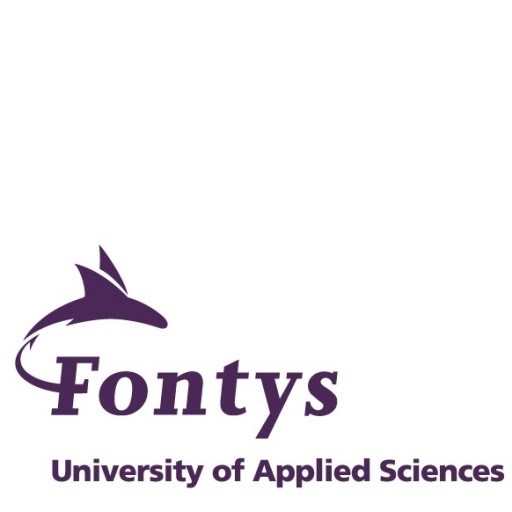Photos of university / #universitycollegecork
Advertisement
This MA, offering Old English, Middle English, and Renaissance modules, explores the full variety and contexts of writing from the islands of Britain and Ireland across the period circa 700 to circa 1700. We concentrate on interactions between texts in English from these islands, examining the beginnings of Anglo-Irish writing, as well as the cultural transmissions and transformations between classical, European, and insular intellectual and literary traditions before 1700.
We also have a particular interest in interrogating traditional period boundaries, such as medieval and Renaissance. Our work is stimulated by exceptional contexts and resources from medieval and early modern sites such as Spensers Kilcolman Castle to the substantial early printed book collections of the Boole Librarys Special Collections and other accessible early collections.
Course Practicalities
The seminars for the taught core course in Texts and Contexts consist of two two-hour sessions per week. Each meeting will concentrate both on close reading of primary texts and on the contextual element of the course, considering authors and texts along with key secondary criticism concerning matters of genre, history, book-history, politics, culture, and art. We will examine some of the major literary influences on medieval and Renaissance texts, and take account of medieval and Renaissance theories of authorship and translation, as well as modern theoretical approaches to pre-modern texts. Field trips to sites of particular importance to the production and dissemination of Anglophone writing in Ireland are undertaken each year (such as Spensers Kilcolman Castle, Co. Cork, and Archbishop Marshs Library, Dublin).
Assessment
The course is assessed by a combination of essays/assignments, a research journal in ePortfolio format, an oral presentation of the proposed dissertation topic and a 15-17,000-word dissertation.
This one-year, intensive taught graduate course is designed to provide you with a greater awareness of the conceptual and critical issues involved in the study of Old, Middle and Renaissance English; some of the historical and cultural contexts that the study of this period involves, and also some sense of how early writing has been received, transmitted, and transformed in modern texts and media. Modern writers and filmmakers have a fascination with the medieval and early modern that goes far beyond rewritings of Shakespeare, or star-studded movie versions of his plays, and this course also aims to alert you to some of these recent cultural approaches.
The course lays the foundation of study at higher degree level. It introduces the subject-specific skills that are required for the primary study of earlier English (palaeography, codicology, analysis of the physical composition of printed texts together with use of databases and bibliographies), as well as developing generic skills (writing, referencing, presentation skills) that will be useful as you embark on a scholarly project or career.
Taught Element
The subject modules and the Literary Research Skills module comprise the taught element of the MA and run from October to March. The subject modules introduce students to the specific thematic area of their choice. The Literary Research Skills module aims to equip MA students for the development and implementation of their research strategy through the acquisition of a range of research skills.
Research Element
Dissertation: the dissertation will be written between March and the end of September, and will be submitted in October. It will be supervised by a member(s) of staff, after consultation and agreement, and will be 15,000 to 17,000 words. Supervision will take place between March and the end of September.
Part 1
* EN6009 Contemporary Literary Research: Skills, Methods and Strategies (10 credits)
* EN6051Middle English Literature, 1200-1550 (10 credits)
* EN6052 New Histories of the Book: theories and practices of earlier writing (10 credits)
* EN6054 Renaissance Literature, c. 1500-1700 (10 credits)
* EN6053 Old English Literature, to c. 1200 (10 credits) or
* EN 6055 Texts and Transformations: Medieval to Renaissance (10 credits)
Note: Subject to the approval of the MA programme co-ordinators, students may substitute one 10-credit module with a 10-credit module from one of the other three MA programmes: Irish Writing and Film; American Literature and Film; Modernities: Romanticism, Modernism, Post-Modernism.
Part II
* EN6017 Dissertation (40 credits)
Lecturers
* Dr Andrew King
* Dr Orla Murphy
* Dr Kenneth Rooney
* Dr Edel Semple
* Dr Thomas Birkett
Want to improve your English level for admission?
Prepare for the program requirements with English Online by the British Council.
- ✔️ Flexible study schedule
- ✔️ Experienced teachers
- ✔️ Certificate upon completion
📘 Recommended for students with an IELTS level of 6.0 or below.
Postgraduate Funding - College of Arts Celtic Studies and Social Science
CACSSS Taught Masters Scholarships
These Scholarships cover the EU fee for Taught Masters programmes in the College of Arts, Celtic Studies and Social Sciences and are awarded on a competitive basis.
CACSSS PhD Scholarships
These Scholarships cover the EU fee for PhD programmes in the College of Arts, Celtic Studies and Social Sciences and are awarded on a competitive basis.
Other funding opportunities, such as the Erasmus Mobility Grant and the Murphy Irish Exchange with the University of Notre Dame, can be found on the Funding page of the Graduate School.








